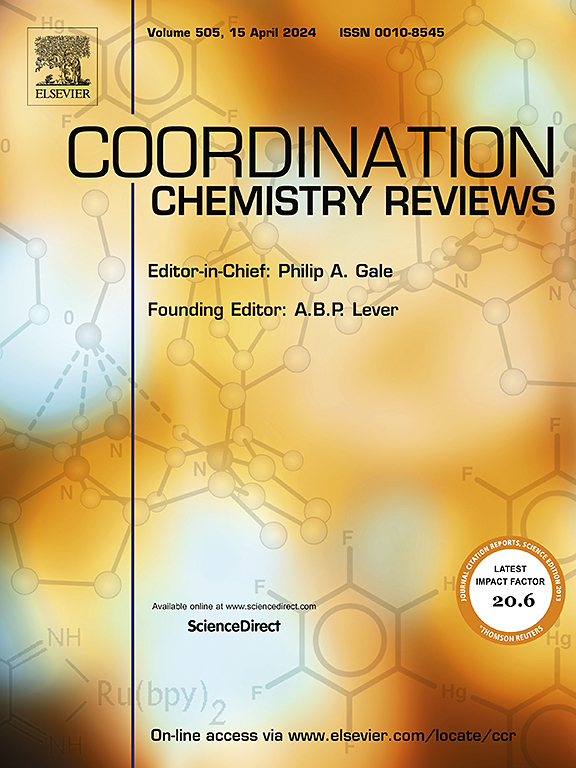Horizons in catalyst-transfer polymerization research
IF 20.3
1区 化学
Q1 CHEMISTRY, INORGANIC & NUCLEAR
引用次数: 0
Abstract
This review provides a comprehensive analysis of catalyst-transfer polymerization (CTP) methods, encompassing established approaches such as Kumada, Suzuki-Miyaura, Stille, Negishi, Murahashi and Sonogashira, alongside emerging metal-free techniques. It explores the unique features, strengths, and limitations of each method, focusing on both their mechanistic and structural aspects. A critical evaluation of catalyst performance across these methods highlights their comparative effectiveness and the impact of various catalysts on polymer properties, emphasizing the importance of catalyst and ligand selection in achieving precise polymer architectures. This review also discusses recent advancements in catalyst engineering, including novel ligands and multi-metal systems, offering valuable insights into optimizing CTP processes. By addressing challenges and opportunities in the field, this review aims to guide researchers in advancing CTP methodologies, fostering innovation in organic electronics and high-performance polymer applications.

催化转移聚合研究进展
本文综述了对催化剂转移聚合(CTP)方法的全面分析,包括Kumada、Suzuki-Miyaura、Stille、根岸、Murahashi和Sonogashira等已建立的方法,以及新兴的无金属技术。它探讨了每种方法的独特特点、优势和局限性,重点是它们的机制和结构方面。对这些方法中催化剂性能的关键评估突出了它们的比较有效性和各种催化剂对聚合物性能的影响,强调了催化剂和配体选择在实现精确聚合物结构中的重要性。本文还讨论了催化剂工程的最新进展,包括新型配体和多金属体系,为优化CTP工艺提供了有价值的见解。通过解决该领域的挑战和机遇,本文旨在指导研究人员推进CTP方法,促进有机电子和高性能聚合物应用的创新。
本文章由计算机程序翻译,如有差异,请以英文原文为准。
求助全文
约1分钟内获得全文
求助全文
来源期刊

Coordination Chemistry Reviews
化学-无机化学与核化学
CiteScore
34.30
自引率
5.30%
发文量
457
审稿时长
54 days
期刊介绍:
Coordination Chemistry Reviews offers rapid publication of review articles on current and significant topics in coordination chemistry, encompassing organometallic, supramolecular, theoretical, and bioinorganic chemistry. It also covers catalysis, materials chemistry, and metal-organic frameworks from a coordination chemistry perspective. Reviews summarize recent developments or discuss specific techniques, welcoming contributions from both established and emerging researchers.
The journal releases special issues on timely subjects, including those featuring contributions from specific regions or conferences. Occasional full-length book articles are also featured. Additionally, special volumes cover annual reviews of main group chemistry, transition metal group chemistry, and organometallic chemistry. These comprehensive reviews are vital resources for those engaged in coordination chemistry, further establishing Coordination Chemistry Reviews as a hub for insightful surveys in inorganic and physical inorganic chemistry.
 求助内容:
求助内容: 应助结果提醒方式:
应助结果提醒方式:


